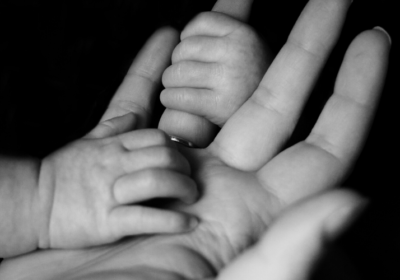“Expectations are resentments under construction.” (Anne Lamott)
Did you know expectations are contagious? Somehow our expectations of our children change depending on who we are with and what we think their expectations are of our child. When Grandma is over, all of a sudden it is not O.K. to throw the ball in the house or watch that PG-13 movie, even though neither of these things would be a big deal if she wasn’t visiting. Or maybe that friend is visiting with her three children who just sit and grin, and all of a sudden you are furious your children are jumping on the furniture. Why aren’t they just sitting and grinning like your friend’s kids? Don’t they understand that our expectations change for them depending on who we are with? No, they really don’t. It takes fluid social reasoning to understand these changing scenarios. Most kids don’t have these skills until they are teenagers, and some much later. When children don’t meet parents’ expectations, they experience anger or shame. It creates a rift in the relationship.
I can remember one Mother’s Day years ago that was full of unmet expectations that were constructing resentment toward my little guy. It wasn’t that his behaviors were so horrible; it was that my expectations of how he should behave on Mother’s Day were unrealistic. It was Mother’s Day; good grief, I just woke up thinking, “Today is going to be amazing!” I had the day all planned. We were going to take a long stroll around the lake, holding hands and walking calmly. We were going to point out wildlife on the way and learn something about the animals’ habitats. Then afterwards, we were going to eat lunch out, where everyone would “ooh” and “ahh” at my beautiful and well-behaved children. Why on earth I expected this in a season of our life where every day was so hard, I have no idea, but I just knew that everyone would understand how sacred this day was and behave.
Instead, this is how the day went. We chased our little guy along the entire three- mile trail. We yelled, “No! Stop! Don’t! Quit!” about 300 times. It happened to be a day when lots of deer were out. All along the trail there were small groups of people standing together pointing at the deer they saw. Each time my son saw a group of people, he ran towards them screaming and threw whatever he had in his hand at the deer. Of course the deer and crowd scattered, murmuring under their breath about “out of control children”. We should have given it up and called it a day, but we went on to have an equally disregulated lunch out. I was so angry at my little guy the whole way home. I resented the fact that he couldn’t behave just this one day. After I put the kids to bed, I had a good long cry. The day wouldn’t have been so hard if I hadn’t expected so much.
If, instead of expecting the day to go smoothly, I had expected that things would be hard, the day would have gone very differently. I still may have ended the day in tears because in the process of changing your expectations you grieve, but it would have been peaceful and without resentment. If I had expected that in all his excitement, he would be even more disregulated than usual, then I wouldn’t have planned several activities after expecting him to be good in church. It was too much for him. We have learned and grown. Now Mother’s Day is low key for us. We pick up food instead of eating out. We stay away from crowds and instead pick a movie everyone can enjoy together
Parents tell me all the time that their kids sabotage special events. This is worth a post all on its own, but I think one of the reasons parents feel this way is because their expectations of special events are so different than their expectations of a regular day. If it is Christmas, then we expect our kids to be appropriately grateful for all the thought we put into their gifts. On their birthday, we expect them to thank each person for their gifts and claim that they love every gift even if the super soaker Grandma got them is so much more fun than the board book they got from their friend.
Some parents hear this and cringe. After all, if you don’t expect anything of children, they won’t live up to their potential, right? Isn’t it true that children only behave as well as we expect them to? There are, of course, expectations that are important and set a standard of how we treat each other. But I will ask you to ask yourself some different questions: “What expectations are getting in the way of my relationship with my child? What would our relationship be like if that expectation was completely out of the picture?”
Healthy expectations are dynamic. They change based on what your child’s needs are in the moment. I expect that when my children are overly tired, overly hungry or overly stimulated they will snap at each other and at us. Snapping at each other would be addressed differently in this situation by meeting their physical needs first. If they snapped at each other at home when they were well rested and satisfied, then I would address speaking to each other with respect. Healthy expectations enhance relationships by creating appropriate boundaries without resentment and shame.
Maybe you expect an introverted child with poor social skills to be more involved in youth group or to be more socially engaging. Maybe you expect your musically gifted child to follow in your footsteps in the music industry, but all he is interested in is sports. Maybe you expect your child with learning disabilities to try harder, do better, and stay motivated with academics. Maybe he is doing the best he can just getting by. Maybe you expect your child to behave in school, but she doesn’t have the support she needs in that environment to behave. If unmet expectations fill the atmosphere of the relationship, then resentment grows. Children start to feel shame and believe that there must be something wrong with them. We cannot sacrifice our relationships with our children because of our expectations of them. As parents, we have this incredible influence over our children. They will forever carry inside of them the feeling of “being enough” or “not being enough” largely based on whether or not they met our expectations. I believe that some of the most toxic situations start with unrealistic expectations. The unhappiest families are those where parents have expectations of a child that the child cannot meet.



